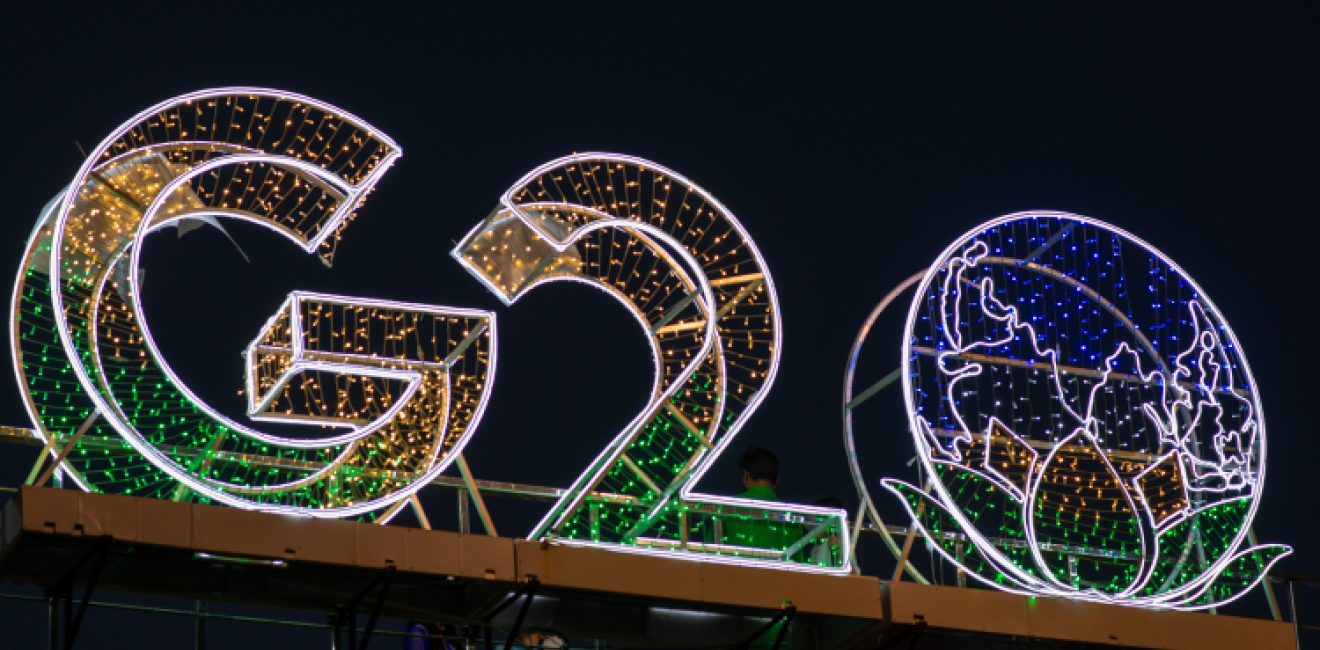Following seven years of lobbying, the African Union (AU) was granted permanent membership in the Group of Twenty (G20) at the Delhi summit on September 9, 2023, making it the organization’s second multi-state organization after the European Union (EU). Prior to the AU’s membership, South Africa was the only Black-majority country that held such status since the G20 began convening in 2008. Last year, in an effort to strengthen ties between the United States and Africa, President Joe Biden revealed to African leaders his desire to see the AU admitted to the G20. Similarly, Judd Devermont, the director of African affairs at the National Security Council, asserted that more African perspectives needed to be heard in international conversations about global economic concerns and climate change, among other things, suggesting a new U.S.-Africa strategy and commitment to supporting elevated African voices in the G20.
The G20 is made up of the world’s leading industrial and growing economies which comprise more than 80% of the global gross domestic product. In addition, its membership accounts for 60% of the world’s land area, two-thirds of the world's population, and 75% of international trade. Like the G20, the AU represents the African continent's 55 countries minus six junta-ruled countries that have been expelled from the organization. With a population of 1.4 billion, the AU has a combined GDP of $3 trillion.
The AU’s unified demonstrations of solidarity and support for common positions during the COVID-19 pandemic, as well as the establishment of the African Continental Free Trade Area (AfCFTA), all contributed to the African Union's high-profile efforts in pursuit of G20 membership.
If Africa is to have an impact on G20 decision-making, it must communicate collectively and respect all AU member views, regardless of the status of each individual member state.
What the African Union Brings to the G20 Bargaining Table
For a very long time, Africa has been forced to digest the decisions of outsiders, even those on matters that directly impact African nations. As part of the G20, African nations have the chance to directly address the problems that most concern them at the global level and help find answers for issues like debt, security, pandemics, and climate change. In addition, by including the AU, the G20 Shows a stronger commitment to building trust and credibility when it comes to global development initiatives.
Think, for example, about Africa's natural resources. The continent contains more than 30% of the minerals required to create low-carbon and renewable energy technology, as well as 60% of the world's renewable energy resources. According to a United Nations Conference on Trade and Development (UNCTAD) assessment on the economic progress of the continent released last month, the Democratic Republic of the Congo alone produces more than half of the world's supply of cobalt, a crucial element for lithium-ion batteries.
Africa, which contributes the least to climate change but is most affected by it, has an abundance of natural resources that could mitigate the impacts of climate change. At the conclusion of the Africa Climate Summit in Nairobi, African leaders demanded a worldwide tax on fossil fuels, equitable treatment by lenders, and the fulfillment of wealthy nations' long-promised $100 billion annually in financing climate-related issues for developing countries. African leaders are tired of seeing outsiders utilize their resources for the benefit of other continents. Realizing such goals is now within reach with the AU now sitting at the international donor table.
Furthermore, based on its number of member countries, the AU could represent a continent that possesses the world's largest area of free trade. This area connects 1.4 billion people living in 55 countries, with a total gross domestic product (GDP) of $3.4 trillion. This free trade zone opens up new markets for the export of both raw and finished goods, enabling the impoverished continent to catch up to the world's economy, which has been growing at an astonishing rate.
Africa, however, carries some baggage into the G20. The continent's security is threatened by seven recent military coups in six West African countries that have lost faith in Western initiatives and democratic tendencies. This development could impede productive AU cooperation within the G20. Additionally, the continent is engulfed in terrorism and insurgencies that stretch from the Great Lakes and Eastern regions to the Horn of Africa and the Sahel. Thus, achieving socioeconomic progress remains difficult with constant warfare scattered throughout nearly all regions of the continent. The G20, because of AU membership, may be drawn into issues related to global security, which is not a primary focus of the organization.
It may also be challenging to find a common ground among some of Africa’s poorest nations and its economic powers—South Africa, Ethiopia, Nigeria, and the rising Kenya. Such conditions may have a negative effect on the collective bargaining power of the AU. If Africa is to have an impact on G20 decision-making, it must communicate collectively and respect all AU member views, regardless of the status of each individual member state. Nonetheless, as a now significant G20 member, it will become increasingly difficult to ignore Africa's demands, and the 43 UN member states and 27 EU countries of the G20 will now need to pay closer attention to Africa than ever before.
Dr. Ruth Namatovu specializes in international affairs for Africa and is an analyst of peace and security. She pursued her doctorate in international affairs at the Johns Hopkins University-School of Advanced International Studies in Washington, DC, with a concentration in international relations and conflict management.
The opinions expressed on this blog are solely those of the authors. They do not reflect the views of the Wilson Center or those of Carnegie Corporation of New York. The Wilson Center's Africa Program provides a safe space for various perspectives to be shared and discussed on critical issues of importance to both Africa and the United States.






